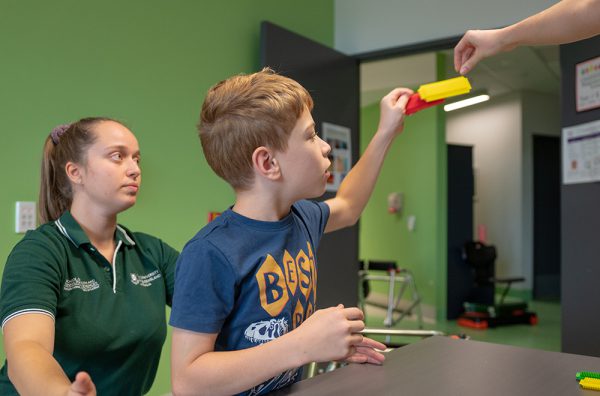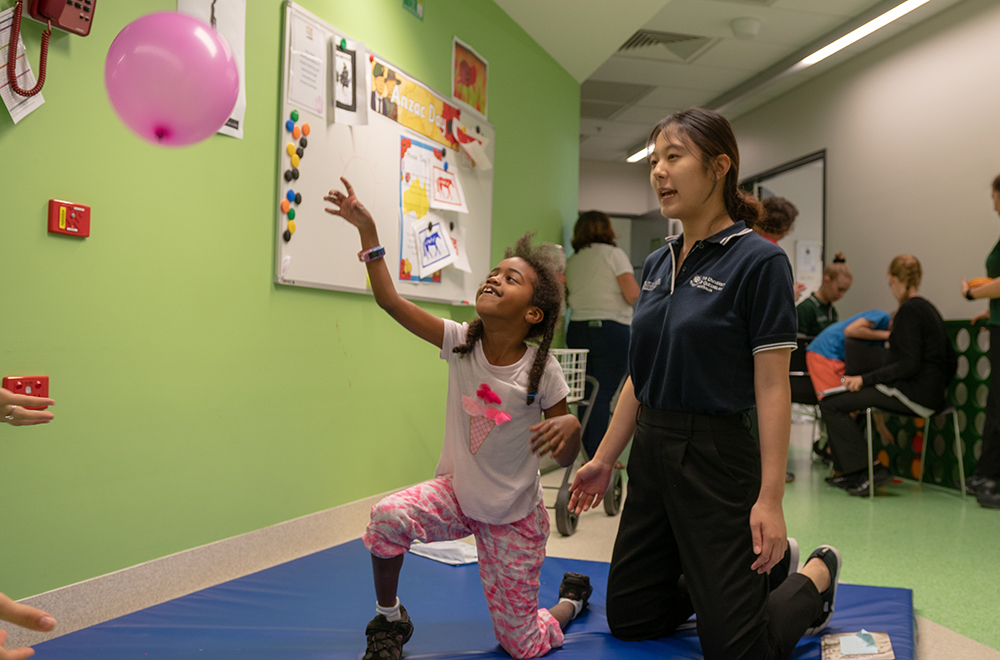Ten children with cerebral palsy are taking part in a two-week University of Queensland (UQ) trial to help develop independence in daily living activities. The children will participate in activities and programs to improve living, eating, feeding, mobility skills and gross motor skills (arms, legs, whole body).
The camp is part of a multi-site Australian trial, where therapists maximise the child’s ability to independently learn a task. It aims to get children moving and performing tasks, without a therapist providing physical assistance.
UQ Child Health Research Centre (CHRC) researcher, Dr Leanne Sakzewski said the camp would provide insight into treating brain function in bilateral cerebral palsy, which affects both sides of the body and brain.

“It’s important for us to understand if this therapy is effective for children with bilateral cerebral palsy, as these children often have difficulty achieving the skills they need to be independent,” Sakzewski said. “We already know that functional goal-directed training is effective in improving daily activity and mobility but this is normally delivered in a short, non-intensive model like physiotherapy for one hour per week.”
Sakzewski said functional magnetic resonance imaging (fMRI) would monitor how the brain responded to the large dose of therapy, with imaging showing the connectivity within the brain and whether these intensive activities promote changes.
“This therapy has been tested in children with other types of cerebral palsy but we will assess how effective it is for those who have damage to both sides of the brain,” she said.
CHRC researcher Dr Sarah Reedman said the children would participate in arts and crafts, and play with board games and toys to develop their motor skills.
“A big part of this therapy is testing a non-contact approach,” Reedman said. “Every activity will be run according to the principle of neuroplasticity, how the brain learns best and most efficiently, by having the children perform the tasks themselves.
“If therapists provide too much physical assistance by steadying a child with their hands, we think it can reduce the amount of active learning happening in the brain. To cause neuroplastic changes to the brain, we need to have a high level of intensity over a prolonged period of time.”
Four senior occupational therapists and physiotherapists will oversee the camp, with support from fourth-year students.
Comment below to have your say on this story.
If you have a news story or tip-off, get in touch with Freedom2live’s managing online editor Kymberly Martin at kymberly@intermedia.com.au
Sign up to Freedom2Live’s newsletter.

